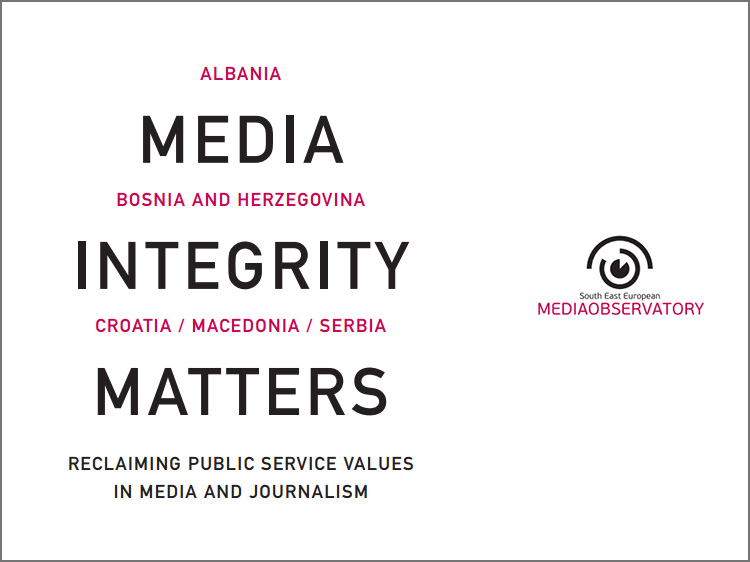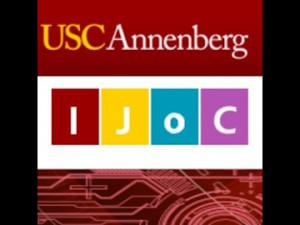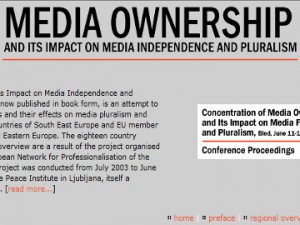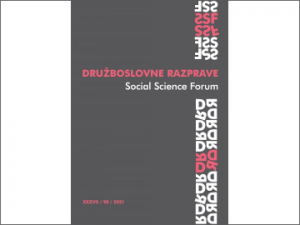The book ‘Media integrity matters’
16. 6. 2014 | Media

“There are obstructing patterns appearing across media systems in the countries of South East Europe that prevent media from serving the public interest. These patterns constitute a system of corrupt relationships that has pervaded the media sphere infecting all of its sections, from media policy to journalism as a profession. The fundamental thesis of our analysis is that media which do not serve the interests of the public are – corrupt. In saying so, we do not have in mind any specific media outlet or a specific journalistic practice but rather the media systems within which these media operate. Democracy rests on freedom of expression, freedom of speech and media freedom. Corrupt media spell the death for democracy. They are a deeply undemocratic institution that transforms the state into a private company.” These observations are part of the regional overview of the research on media integrity published recently in a book “Media integrity matters – Reclaiming public service values in media and journalism”. The book was published by the Peace Institute within a regional partnership of civil society organisations “South East European Media Observatory”.
Conducted between July 2013 and February 2014, the research on media integrity was an attempt to address obstacles to a democratic development of media systems in the countries of South East Europe by mapping patterns of corrupt relations and practices in media policy development, media ownership and financing, public service broadcasting, and journalism as a profession. It has introduced the concept of media integrity to denote public service values in media and journalism. Five countries were covered by the research presented in the book: Albania, Bosnia and Herzegovina, Croatia, Macedonia and Serbia.
The book and the project South East European Media Observatory build on the legacy of previous research and advocacy actions of the regional network SEENPM and the Peace Institute, especially the 2003/2004 research and book on media ownership and its impact on media independence and pluralism. In fact, the present media integrity research has been an elaboration of the situation “ten years after”.
Following the release of “Media Integrity Matters” title that includes research reports, more than 100 journalists, media experts and media policy officials from the countries of South East Europe as well as representatives of European and international organisations and media met in Tirana to discuss the research findings at the central regional conference of the South East European Media Observatory. Held on 12-13 June 2014, the conference “Media and journalism in SEE– Captured by particular interests or turning to serve the public?” was also the occasion to reflect the potential of the media integrity concept to explore and better understand the situation with media systems in the region, and to address the obstacles for their democratic development. “The media integrity concept can be a living and evolving one. In using this valuable framework, however, we should avoid the pessimistic path of simply mapping deficits against high ideals. The real deal should be examining trends over time, to measure evolving strengths, and to celebrate when the glass is filling up, rather than emptying,” said Guy Berger, Director of the Division of Freedom of Expression and Media Development, UNESCO.
The research findings and recommendations continue to inspire policy debates and advocacy actions on national and regional level, and will be on the initiative of MEP Tanja Fajon presented to the Members of the European Parliament and other European policy makers on 18 November 2014 in Brussels.
E-book (.pdf)





